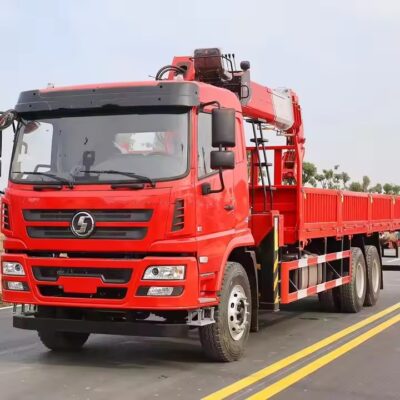Proper maintenance of a wrecker truck is crucial to ensure its reliability and safety during operations. Here’s a detailed guide to maintaining a wrecker truck effectively:
Regular Inspection of Fasteners
Importance of Fastener Checks
- Vibration and Load Impact: The diesel engine’s operation can cause nuts and bolts to loosen due to vibration and uneven load distribution.
- Preventing Accidents: Regular inspection prevents traffic accidents caused by loose parts.
Inspection Routine
- Visual and Manual Checks: Conduct thorough visual inspections and manually check the tightness of all nuts and bolts.
- Critical Areas: Pay special attention to fasteners on critical components such as the chassis, towing apparatus, and engine mounts.
- Torque Specifications: Use a torque wrench to ensure fasteners are tightened according to the manufacturer’s specifications.
Lubrication of Bearings
Importance of Lubrication
- Bearing Longevity: Proper lubrication reduces friction and wear, extending the life of the bearings.
- Smooth Operation: Lubricated bearings ensure smooth and efficient operation of the truck.
Lubrication Routine
- Pre-Operation Check: Ensure all bearings are adequately lubricated before starting the vehicle.
- Regular Maintenance: Follow a scheduled maintenance plan for re-lubricating bearings as recommended by the manufacturer.
- Quality Lubricants: Use high-quality lubricants suitable for the specific types of bearings in the truck.
Engine Warm-Up
Warm-Up Procedure
- Engine Start-Up: Wait for the engine to start normally.
- Optimal Temperature: Allow the water temperature to reach 40 to 50 degrees Celsius before beginning operations.
Avoiding Low-Speed Operation and Overloading
- Avoid Prolonged Idling: Prolonged low-speed operation can lead to incomplete combustion and carbon buildup.
- Prevent Overloading: Do not exceed the truck’s towing capacity to avoid undue stress on the engine and other components.
Consistent Supply of Essential Fluids
Cooling Water, Diesel, or Gasoline
- Constant Supply: Ensure a steady and timely supply of cooling water, diesel, or gasoline to prevent operational issues.
- Fluid Levels: Regularly check and maintain appropriate levels of all essential fluids.
Impact of Fluid Interruption
- Engine Start-Up Issues: Interruptions can cause difficulty in starting the engine.
- Power Reduction and Poor Combustion: Insufficient fuel supply can lead to power loss and inefficient combustion.
- Increased Wear: Inadequate oil supply can cause poor lubrication, leading to increased wear of internal components.
- Overheating: Insufficient cooling water can cause the engine to overheat, reducing power and lifespan.
Engine Maintenance
Regular Engine Checks
- Routine Inspections: Conduct regular engine inspections to identify any potential issues early.
- Oil and Filter Changes: Change engine oil and filters at recommended intervals to maintain optimal engine performance.
- Air Filter Maintenance: Keep air filters clean to ensure proper airflow and efficient combustion.
Break-In Period
Importance of Break-In
- Component Longevity: Proper break-in procedures help ensure the longevity and reliability of all components.
Break-In Procedure
- Follow Manufacturer’s Guidelines: Adhere strictly to the manufacturer’s break-in recommendations.
- Gradual Increase in Load: Gradually increase the load and operating speeds during the break-in period.
- Monitor Performance: Closely monitor the truck’s performance during this period to identify and address any issues early.
Additional Maintenance Tips
Electrical System
- Battery Maintenance: Regularly check battery terminals and connections to ensure they are clean and secure.
- Lighting and Signals: Ensure all lights and signals are functioning correctly.
Tires and Brakes
- Tire Pressure and Tread: Regularly check tire pressure and tread depth to ensure safe operation.
- Brake Inspection: Frequently inspect brakes for wear and ensure they are functioning properly.
Safety Equipment
- Emergency Kit: Keep an emergency kit on board, including tools, spare parts, and first-aid supplies.
- Reflective Gear: Ensure all safety gear, including reflective vests and warning triangles, are in good condition and easily accessible.
By following these detailed maintenance practices, you can ensure the safety, reliability, and efficiency of your wrecker truck, thereby minimizing downtime and maximizing operational effectiveness.












